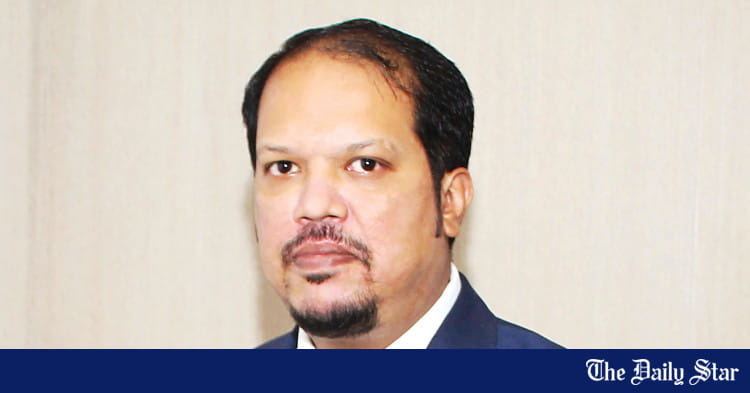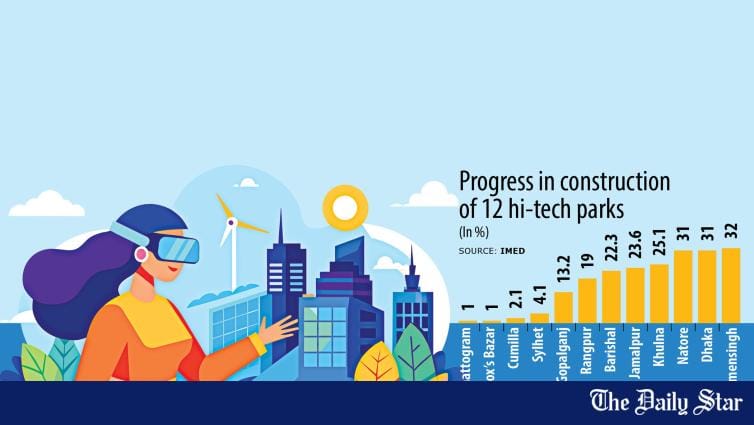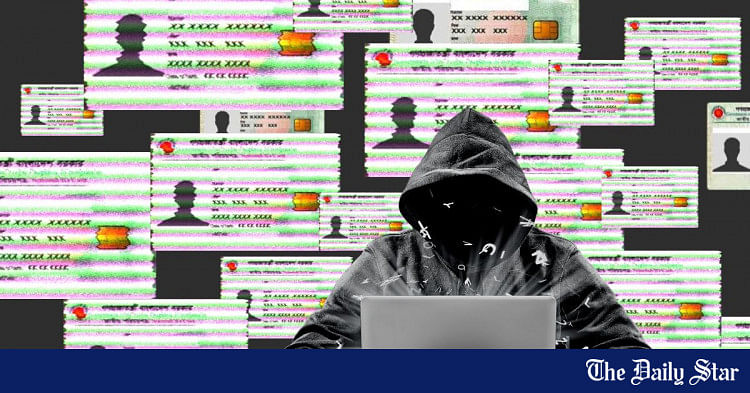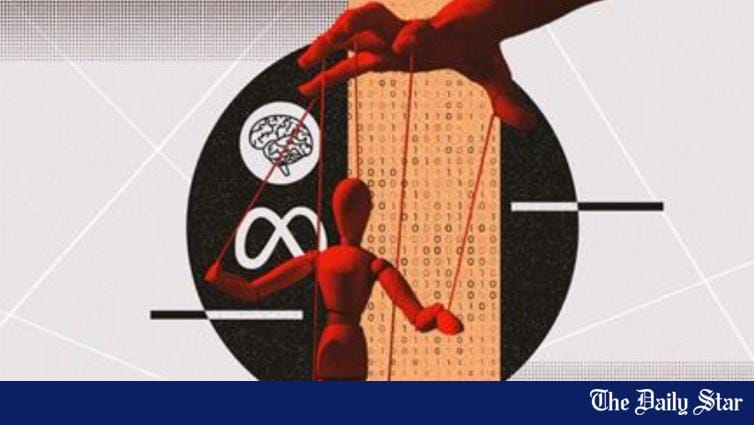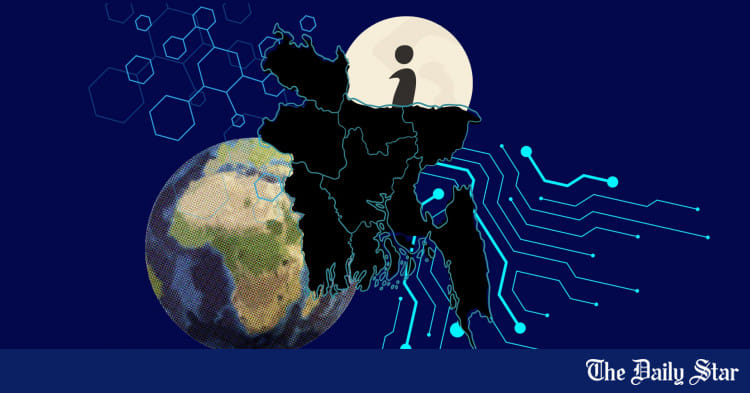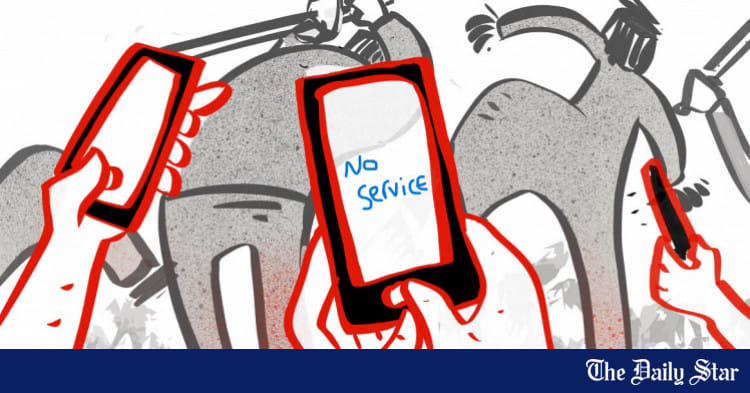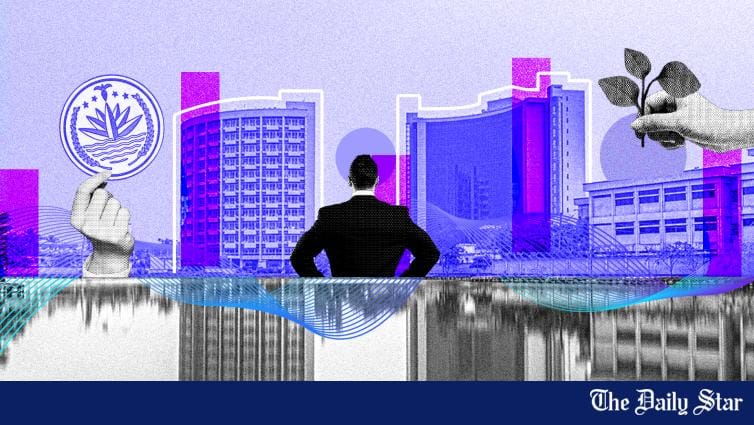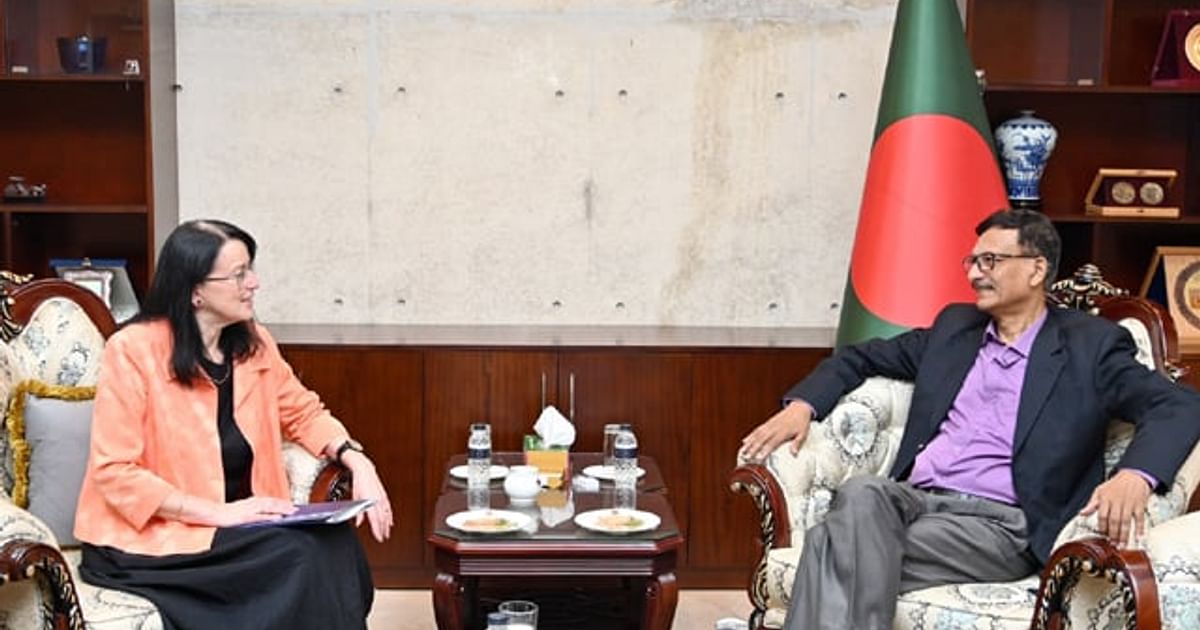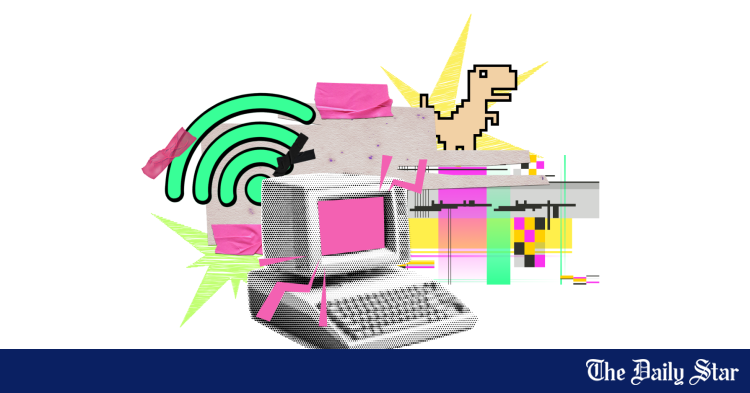- Copy to clipboard
- Thread starter
- #51
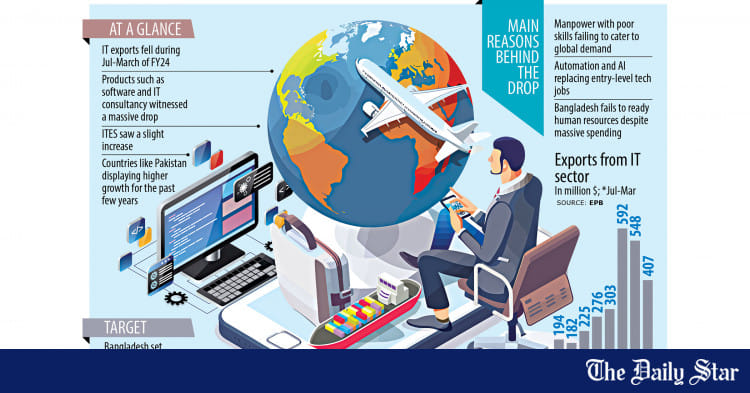
IT exports decline in July-March
Bangladesh’s IT exports declined in July-March of the current financial year, highlighting the country’s struggle to gain a foothold in the global information and communications technology sector.
IT exports decline in July-March

Bangladesh's IT exports declined in July-March of the current financial year, highlighting the country's struggle to gain a foothold in the global information and communications technology sector.
According to data from the Export Promotion Bureau (EPB), earnings of IT firms dropped 2.33 percent to $407.07 million in the first nine months of 2023-24. In the same period a year prior, shipments stood at $416.79 million.
Software exports dropped by 25 percent to $28.6 million and computer consultancy services plummeted 45 percent to $14 million. Earnings from IT-enabled services, however, increased by 4.64 percent to $361.30 million.
If the current IT export trend persists, the sector might see a drop in shipments for the second year in a row. In 2022-23, overseas sales from the industry fell for the first time in five years.
Earnings of IT firms dropped 2.33 percent to $407.07 million in the first nine months of 2023-24
Industry people said the fact that the country has failed to produce big IT firms is an ominous sign for the government's export diversification efforts. Garment accounts for about 85 percent of Bangladesh's earnings from the external sector.
"The negative growth of software services gives a bad signal," said Fahim Mashroor, a former president of the Bangladesh Association of Software and Information Services (BASIS).
The export fall in July-March came although exporters are benefiting from a higher dollar rate, which has gained by 35 percent against the taka in the past two years. One explanation might be that exporters are not bringing in proceeds since the local currency is expected to weaken further amid the persistently lower level of foreign currency reserves.
"Although Bangladesh's software exports are declining, other countries like Pakistan have been displaying higher growth for the past few years," Mashroor added.
Pakistan's IT exports increased 25 percent year-on-year to $2.93 billion in July-May of FY24 although the country is far behind Bangladesh in various economic and social indicators.
Syed Almas Kabir, another former BASIS president, said big changes in global IT outsourcing have contributed to the negative growth in the sector.
He explained the IT services Bangladesh exports require low skills but they are now being replaced by automation and artificial intelligence (AI).
"For example, we used to export large volumes in the 2D graphics and manual data entry segments, both of which can now be handled through robotic automation and AI. These factors have primarily contributed to the downturn in ICT exports," Kabir said.
"Global companies now want to outsource high-level tasks. Therefore, unless we can build a workforce capable of handling such tasks, we will continue to lose contracts. Our workforce needs to learn sophisticated tasks such as 3D animation, blockchain, data analysis, and AI.
"Unless these changes are made, exports will continue to decline."
The IT entrepreneur added if broadband is not extended to remote areas and the curriculum is not updated, the export earnings would not receive a boost.
The grim scenario of Bangladesh's IT exports comes despite the government spending thousands of crores of taka on IT infrastructure and skill development projects over the past decade and a half.
Asked if these initiatives have created skilled manpower capable of competing globally, Kabir said: "Unfortunately, not."
He said there are good intentions at the top level of the government to make Bangladesh an ICT powerhouse, but failures have occurred in implementation.
To read the rest of the news, please click on the link above.
Bangladesh's IT exports declined in July-March of the current financial year, highlighting the country's struggle to gain a foothold in the global information and communications technology sector.
According to data from the Export Promotion Bureau (EPB), earnings of IT firms dropped 2.33 percent to $407.07 million in the first nine months of 2023-24. In the same period a year prior, shipments stood at $416.79 million.
Software exports dropped by 25 percent to $28.6 million and computer consultancy services plummeted 45 percent to $14 million. Earnings from IT-enabled services, however, increased by 4.64 percent to $361.30 million.
If the current IT export trend persists, the sector might see a drop in shipments for the second year in a row. In 2022-23, overseas sales from the industry fell for the first time in five years.
Earnings of IT firms dropped 2.33 percent to $407.07 million in the first nine months of 2023-24
Industry people said the fact that the country has failed to produce big IT firms is an ominous sign for the government's export diversification efforts. Garment accounts for about 85 percent of Bangladesh's earnings from the external sector.
"The negative growth of software services gives a bad signal," said Fahim Mashroor, a former president of the Bangladesh Association of Software and Information Services (BASIS).
The export fall in July-March came although exporters are benefiting from a higher dollar rate, which has gained by 35 percent against the taka in the past two years. One explanation might be that exporters are not bringing in proceeds since the local currency is expected to weaken further amid the persistently lower level of foreign currency reserves.
"Although Bangladesh's software exports are declining, other countries like Pakistan have been displaying higher growth for the past few years," Mashroor added.
Pakistan's IT exports increased 25 percent year-on-year to $2.93 billion in July-May of FY24 although the country is far behind Bangladesh in various economic and social indicators.
Syed Almas Kabir, another former BASIS president, said big changes in global IT outsourcing have contributed to the negative growth in the sector.
He explained the IT services Bangladesh exports require low skills but they are now being replaced by automation and artificial intelligence (AI).
"For example, we used to export large volumes in the 2D graphics and manual data entry segments, both of which can now be handled through robotic automation and AI. These factors have primarily contributed to the downturn in ICT exports," Kabir said.
"Global companies now want to outsource high-level tasks. Therefore, unless we can build a workforce capable of handling such tasks, we will continue to lose contracts. Our workforce needs to learn sophisticated tasks such as 3D animation, blockchain, data analysis, and AI.
"Unless these changes are made, exports will continue to decline."
The IT entrepreneur added if broadband is not extended to remote areas and the curriculum is not updated, the export earnings would not receive a boost.
The grim scenario of Bangladesh's IT exports comes despite the government spending thousands of crores of taka on IT infrastructure and skill development projects over the past decade and a half.
Asked if these initiatives have created skilled manpower capable of competing globally, Kabir said: "Unfortunately, not."
He said there are good intentions at the top level of the government to make Bangladesh an ICT powerhouse, but failures have occurred in implementation.
To read the rest of the news, please click on the link above.




